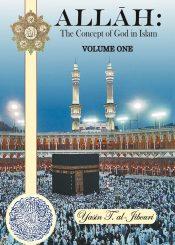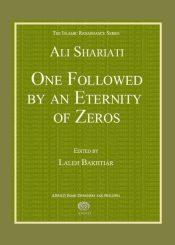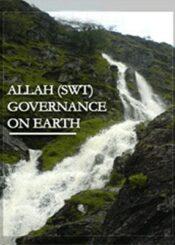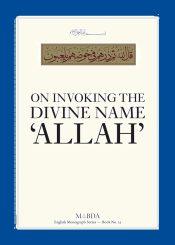The Boundless Knowledge of God
The Boundless Knowledge of God

0 Vote
347 View
God and His Attributes By: Sayyid Mujtaba Musavi Lari Translated By: Hamid Algar P. 127-132 A Creator Who cannot be circumscribed by place for Whose Essence no limit is conceivable of Whose being not a single part of the heavens and earth is empty-such a Creator is naturally aware of all things; there is nothing throughout the whole scheme of being on which the bright rays of His knowledge do not shine. The events that occur in the most distant part of the universe happenings that occurred billions of years ago or will occur billions of years in the future-all are contained in the sphere of His knowledge and the most comprehensive attempts at interpreting His knowledge are therefore doomed to failure. In order to understand the extensive scope of His knowledge we stretch the limits of our thought apply our intelligence to reflection and search and try to advance to our goal with a clear mind. In the last resort however our mental apparatus lacks the skills required for reaching the goal. If we were to exist everywhere in just the same way that we exist at a given place and in a given time so that no place was deprived of our presence nothing would be hidden from us and we would be aware of everything. For us the world of being has been divided into two sectors: the manifest and the hidden. Things are "hidden" in the sense that certain truths being infinite and non-material cannot be perceived by the outer senses. It is important to remember that the entirety of existence does not consist of matters that lie within the range of the empirical sciences. In order to understand the secrets and mysteries of creation we need as it were a launch platform. The elevation we are able to reach depends on the intellectual force we have at our disposal and the degree of understanding that propels our ascent. Once we have a suitable launch platform many realities become knowable to us. ***** Through its use of the term ghayb (hidden) the Noble Quran sets before man a broad vision of reality. God's messengers have also striven to raise man's awareness of the created universe to a level that embraces infinite as well as the finite and the boundaries of the unseen as well as the dimensions of the manifest. For God the "hidden" does not exist; for Him the universe is entirely manifest. The Quran says: "He is the Knower of the Hidden and the Manifest the Compassionate and the Merciful." (59:22) Whatever is made by man derives from the skill intelligence and knowledge of its maker. The more subtle and refined the product the more clearly it displays the profound and extensive knowledge of its maker and the more fully it proves his ability to plan and design. Man's handiwork is not in any way comparable to the mysteries and splendor of creation. Nonetheless it suggests to us that the harmonious and orderly scheme of the universe and the manifestatior of intelligence in this vast beautiful and astounding pattern of creation must necessarily indicate that the one who plans it and endows it with order must possess boundless and comprehensive knowledge. The orderliness of the universe is the strongest proof for the existence of a being that overflows with the knowledge will awareness and wisdom and has designed the wonders of creation in accordance with a precisely calculated plan. The signs of His infinite knowledge are to be seen plainly in every particle of every phenomenon. The experiments and theories of scientists furnish proof for who ever desires it of the boundless knowledge of God and its countless manifestations in the insect animal and vegetable realms. God is aware of the course of the stars in space the tumult ridden world of the nebulae and the rotation of the galaxies; of all things from pre-eternity to post-eternity; of the total number of atoms in all the heavenly bodies; of the motions of the billions of creatures large and small that move on the face of the earth and in the depths of the oceans; of the norms and laws that unfailingly regulate nature; of the hidden and manifest aspects of all things. He even knows the perplexities of the distraught better than they do themselves. Listen again to what the Quran has to say: Is not the one who created the world aware of the secrets of His own creation? Certainly He has knowledge of all the subtleties and mysteries of the world. (67:14) Nothing is hidden from God neither on earth nor in the heavens. (3:5) Natural scientists are better acquainted than others with the subtle and precise mysteries that are implanted in every particle of creation; they are aware from their studies and researches of the various calculations that are built into things both living and lifeless in cells and globules; of the various forms of action and reaction outward and inward that take place in them; and of the effects of various materials and substances. Thus they witness the signs of God's astounding wisdom and infinite knowledge in nature or as the Quran puts it ...on the horizons. (41:53) More than others they are exposed to the manifestation of God's attributes and perfection's including His unbounded knowledge and if they do not reject the call of their conscience they will also discern the existence of the Creator more clearly. A certain thinker once said Our world resembles a great idea more than it does a great machine. As a theory or a scientific definition it can be said that the world is the product of a great idea the manifestation of a thought and an idea superior to our own. Scientific thought seems to be moving in the direction of this theory. God's knowledge is not restricted to things past or to present events and objects; His knowledge of the future is exactly like His knowledge of the present. God's knowledge is so to speak immediate in the complete sense of the word. It is not in the first instance necessary that there should be an object of knowledge to Which His knowledge should attach itself. All things stand revealed before Him for at the very same time that His sacred essence is utterly other than all creatures and phenomena it is also not separate from them: all things past and future are in His unmediated presence. Ali upon whom be peace the Commander of the Faithful says: He knows all things but not through means and instruments the absence of which would entail the cessation of His knowledge. There is not some added entity called 'knowledge' interposed between Him and the objects of His knowledge; there is nothing but His essence alone. Here Ali peace be upon him is referring to the theological principle that God's awareness of things is direct and immediate. In His knowledge of phenomena God has no need of the mental forms that are the basis of acquired knowledge. Were He to acquire His knowledge by means of those forms need would arise in Him whereas He is utterly free of need. The one from whom the existence of the world and its inhabitants derives who is capable of meeting every imaginable need who grants every perfection and bounty-is it all conceivable that He should Himself be imprisoned by Need? Mental forms remain in our minds only so long as we wish them to exist; they disappear as soon as we withdraw our attention from them because they are fashioned and created by us. This form of knowledge is not direct and unmediated and it is therefore termed "acquired knowledge by contrast with immediate knowledge that has no need of a means. The difference between us, who create our own mental forms and the Creator Who originated all being, lies in this, that we owe our very existences to Him and, therefore, stand in need of Him, whereas He is the true Creator and vivifier of all things, is free of need, and does not need the exercise of vision to acquire knowledge. The delineation of past and future events that takes place on the horizons of our being and thought is inevitably limited, since we occupy a given time and space outside of which we have no existence. We are material phenomena, and matter, according to the laws of physics and relativity, needs time and place in its gradual and continuous process of development and change. Past and future have no meaning for a being who is present from pre eternity to post-eternity, in all places and at all times and free from the captivity of matter and its consequences. Since every phenomenon relies on the infinite existence of the Creator for its origin and existence, no veil or barrier can be supposed to exist between God and that phenomenon; God encompasses its inner and outer dimensions and is utterly empowered over it. Someone once asked Ali, upon whom be peace, the Commander of the Faithful, Where is God?" Ali answered: It is not correct to ask where God is because it is God Who made place. Nor is it correct to ask how God is of what nature is God since it is God Who created all nature. Further it is not correct to ask what God is because it is God Who created all quiddity. Glorified be God Almighty in the waves of Whose splendor the wise are unable to swim the remembrance of Whose eternity halts all thought in its track and in Whose vast heaven of sanctity the intellect loses its way! The Quran says: God is aware of all that exists on the face of the earth and in the depths of the oceans. He knows of every leaf that falls and every seed that is hidden in the darkness of the earth. All things fresh and dry are clear and evident to Him. (6:59) Let us imagine that we are in a room overlooking the street and watching through a small window the mass of cars that swiftly moves down the street. Obviously we cannot see all the cars at once; we see them one by one as they pass in front of the window and then they disappear from sight. If we knew nothing about cars we might imagine that they gradually come into being on one side of the window and cease to exist on the other. Now this small window corresponds exactly to our field of vision; it determines a past and a future for the cars. Those who are outside the room standing on the sidewalk see all the cars moving along together. Our situation with respect to the past and future of the world is like that of the person watching the cars through a small window. Once we realize that God is above time and place we understand that all past and future events are always present and existent in front of Him like a painting. We ought therefore to have a sense of responsibility toward a Creator Who is aware of the slightest act and deed of creation as the Quran says: He knows all that you do (2:283) and avoid any sin or mistake that would cause us to become distant from Him. We ought to worship God the possessor of absolute knowledge Who has caused us to traverse these various stages and to attain the capacities we now have. We ought not to disobey His commands Which open up for us the path to true felicity and the ultimate aim of man and we should accept no goal other than Him. In order to reach God we must adorn ourselves with divine attributes and prepare ourselves during our brief sojourn in this world for the meeting with Him. Then we may return to Him the source origin and beginning of our existence. This requires action and striving effort aimed at refining the self for the responsibility to act in this sense has been placed on man's shoulders as a divine trust. Source: maaref-foundation.com






